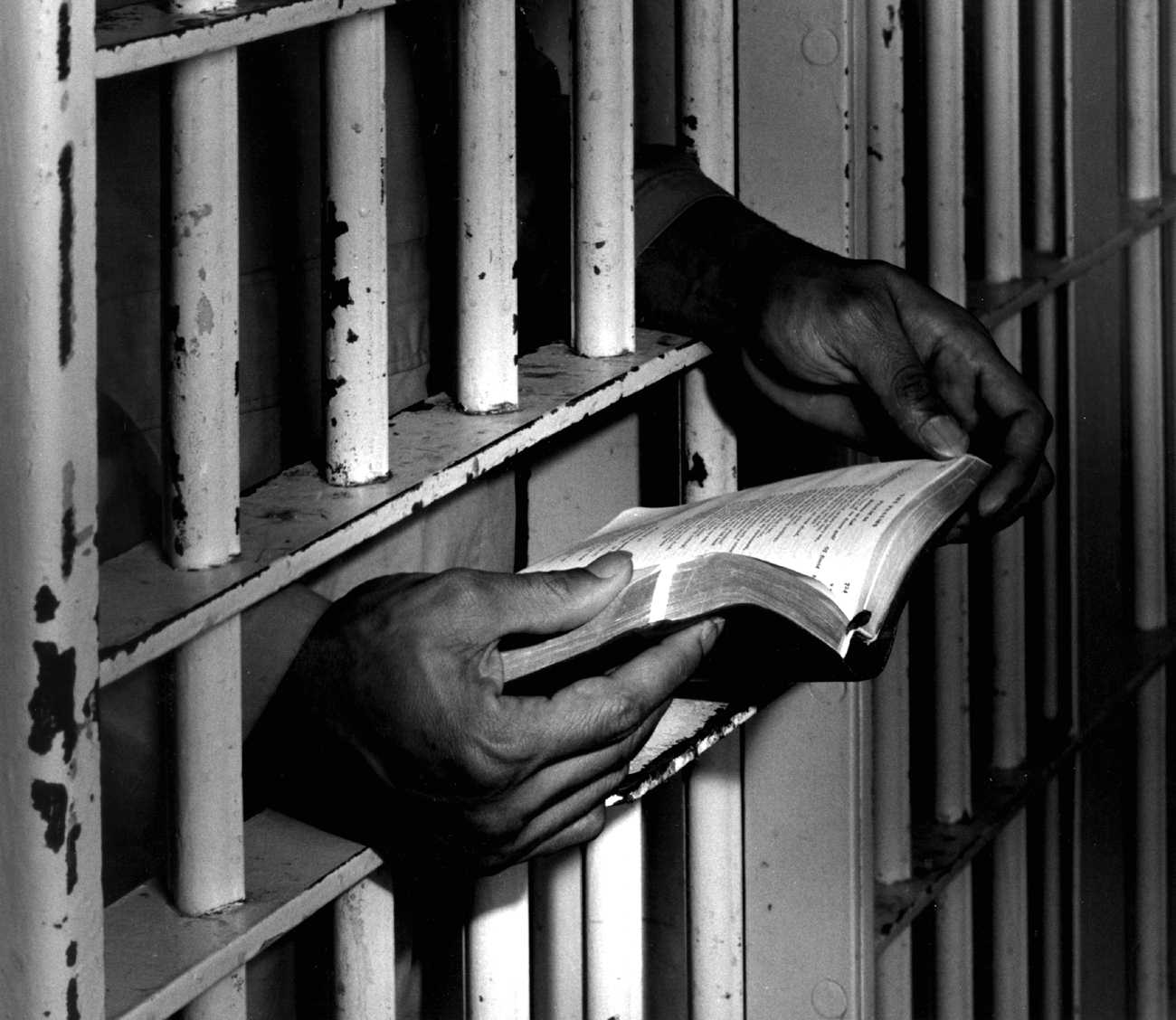They led Jesus away to the high priest; and
all the chief priests and the elders and the scribes gathered together. Peter
had followed him at a distance, right into the courtyard of the high priest;
and he was sitting with the officers and warming himself at the fire. Now the
chief priests and the whole Council kept trying to obtain testimony against
Jesus to put him to death, and they were not finding any. For many were giving
false testimony against Him, but their testimony was not consistent. Some stood
up and began to give false testimony against Him, saying, "We heard him
say, 'I will destroy this temple made with hands, and in three days I will
build another made without hands.'"
Not even in this respect was their testimony consistent. The high priest
stood up and came forward and questioned Jesus, saying, "Do you not
answer? What is it that these men are testifying against you?" But he kept
silent and did not answer. Again the high priest was questioning him, and
saying to Him, "Are you the Christ, the Son of the Blessed One?" And
Jesus said, "I am; and you shall see THE SON OF MAN SITTING AT THE RIGHT
HAND OF POWER, and COMING WITH THE CLOUDS OF HEAVEN." Tearing his clothes,
the high priest said, "What further need do we have of witnesses? You have
heard the blasphemy; how does it seem to you?" And they all condemned him
to be deserving of death. Some began to spit at him, and to blindfold him, and
to beat him with their fists, and to say to him, "Prophesy!" And the
officers received him with slaps in the face.
The entire book of Mark has been pointing to this
moment. Jesus’ politically charged
message and his confrontations with the Pharisees and those sent from
Jerusalem; Jesus’ prophecies of rejection and condemnation by those in
Jerusalem and his challenge to those who followed him; the kingly entrance into
Jerusalem and the cleansing of the Temple and the confrontations with Jewish
leaders—all of this is culminated at this point in the story.
The Council or Sanhedrin was made up of
seventy leaders of Judea, and they were still making laws and leading Jews
throughout the world, even though the Romans were technically the rulers. It is this group that Jesus has been
challenging from the beginning, opposing their laws, their governance, and
claiming that God would set them aside and replace them. Now they are confronting Jesus and they have
all the power, all the authority and they can do whatever they want.
First, they bring witnesses against Jesus, as
one would do in a proper court case. The
witnesses accused Jesus of seeking to destroy the temple and build his
own. This is a great fear of the
priests, since there was a Jewish group, called Essenes, who claimed the temple
and priesthood was impure and would need to be replaced. However, none of the Essenes had come as
close as Jesus did to actually cleansing the temple. The witnesses, though, contradicted each
other, and so were inadmissible as evidence.
The high priest was leader of the Sanhedrin and so confronted
Jesus. He wanted Jesus to make some
reply to the accusation that he wanted to destroy the temple, but Jesus
remained silent. This silence was also
following the prophecy of Isaiah 53:7.
The high priest took a different tactic at this point, and asked Jesus
if he was the promised king of Jerusalem, using the two most common
titles—Messiah and Son of God.
If Jesus
had replied to the accusation of him destroying the temple, he could have eased
their minds by saying “I will not destroy the temple, but God himself
will.” Then they would know that he was
“just” a prophet, waiting upon God’s action.
But he didn’t answer that question.
Instead, he answered the question that would do him the most damage
before them. He affirmed the titles
before the high priest—thus he was saying, “That’s right, I am going to take
over your job.”
And then he said more to
ensure that the Sanhedrin would be in an uproar—he quotes Daniel 7:13-14, which
uses the title “Son of Man” for the Christ, and says that the Son of Man would
be sitting beside God as his equal in authority. In the Jewish mindset, this would be
diminishing God’s glory, and so would be blasphemy.
The high priest and most of the Sanhedrin
were Sadducees, and so they did not believe in the later writings, like Daniel,
and were probably unfamiliar with the passage Jesus was quoting. They claimed that Jesus was being blasphemous
and so was deserving of death according to Leviticus 24:16. So they unanimously condemned him to
death. Jesus’ suffering began
immediately with a beating and mocking of prophets, even as Jesus claimed that
this group was one who beat and mocked prophets (Mark 12:1-5).
It is essential to know that Jesus chose the cross himself. If he had spoken the truth in a different way, been a bit more clear, to either the Sanhedrin or Pilate, then he would not have died. He could have lived a full life, creating groups and establishing a new school. If he had consulted with any of his disciples, they would have spoken of the benefit of remaining with them, of living a long life and having his influence spread throughout the world. If he had listened to his own body, sweating blood and crying out for deliverance, he would have forsaken this plan.
But just as there was a time for Jesus to take up his cross, to allow himself to be sacrificed for the sake of others, even so there is that time for every disciple of Jesus. And when it happens, when we are faced with a sacrifice that our body cries out against and all our family and friends decry, we will have to make that choice ourselves. God will probably not force us. There will be a way out, just as there was for Jesus. And we will have to lay ourselves down for the sake of others, but only if we so choose.
This is why so few actually take up the cross themselves. Such tremendous love is hard, so hard, and few have the stamina to see it out. Few will face the opposition and say that which will harm ourselves. Few are the lovers of the cross.







